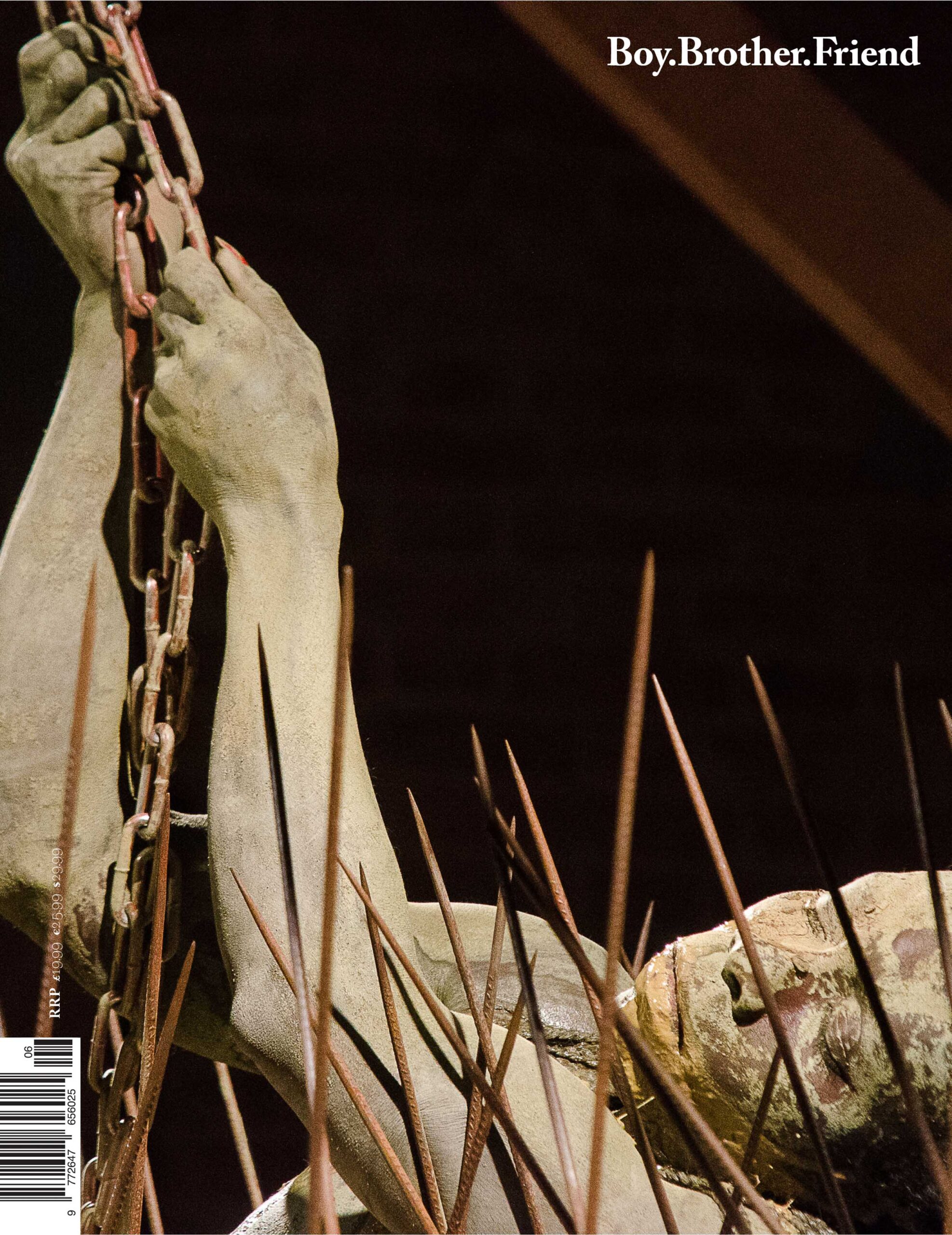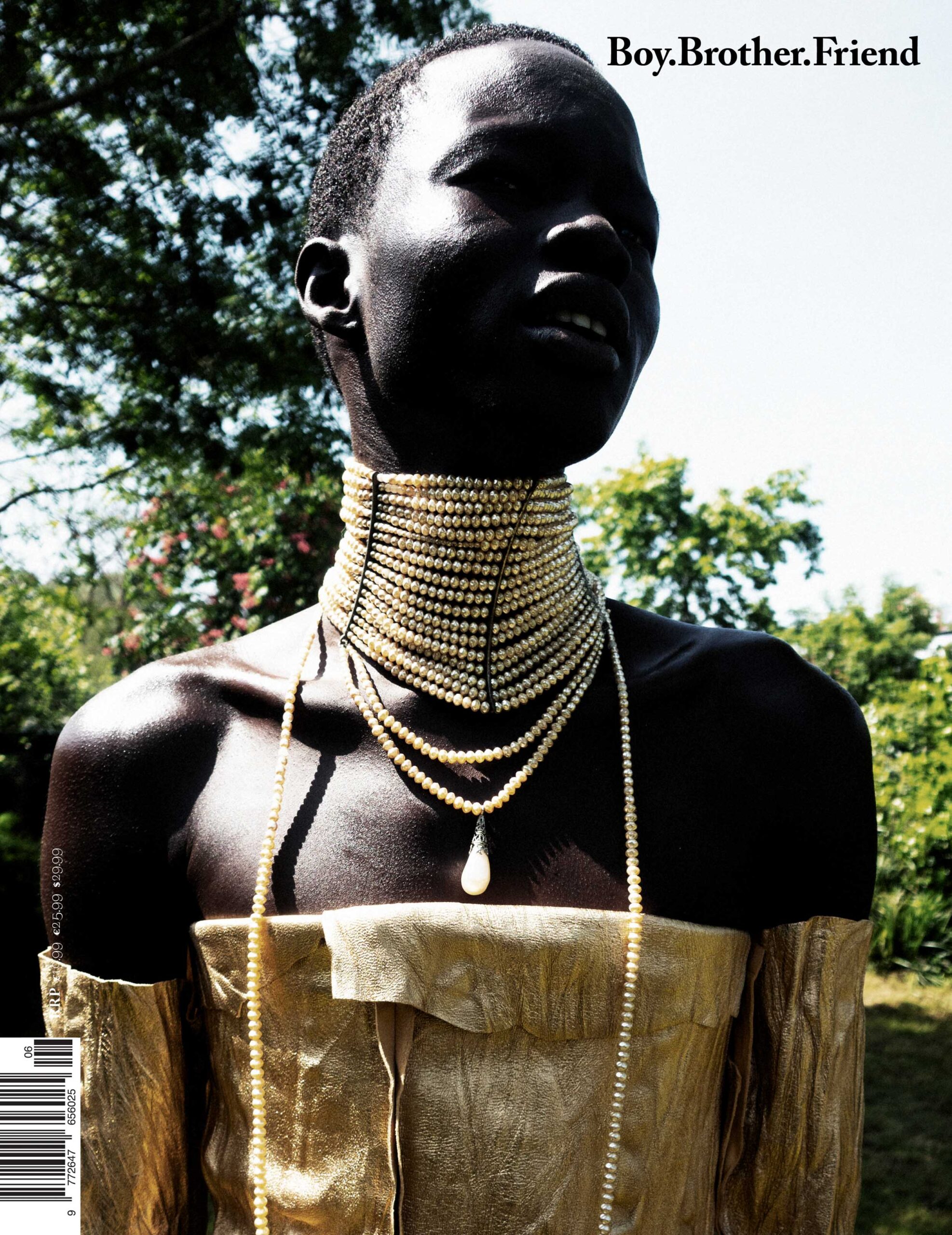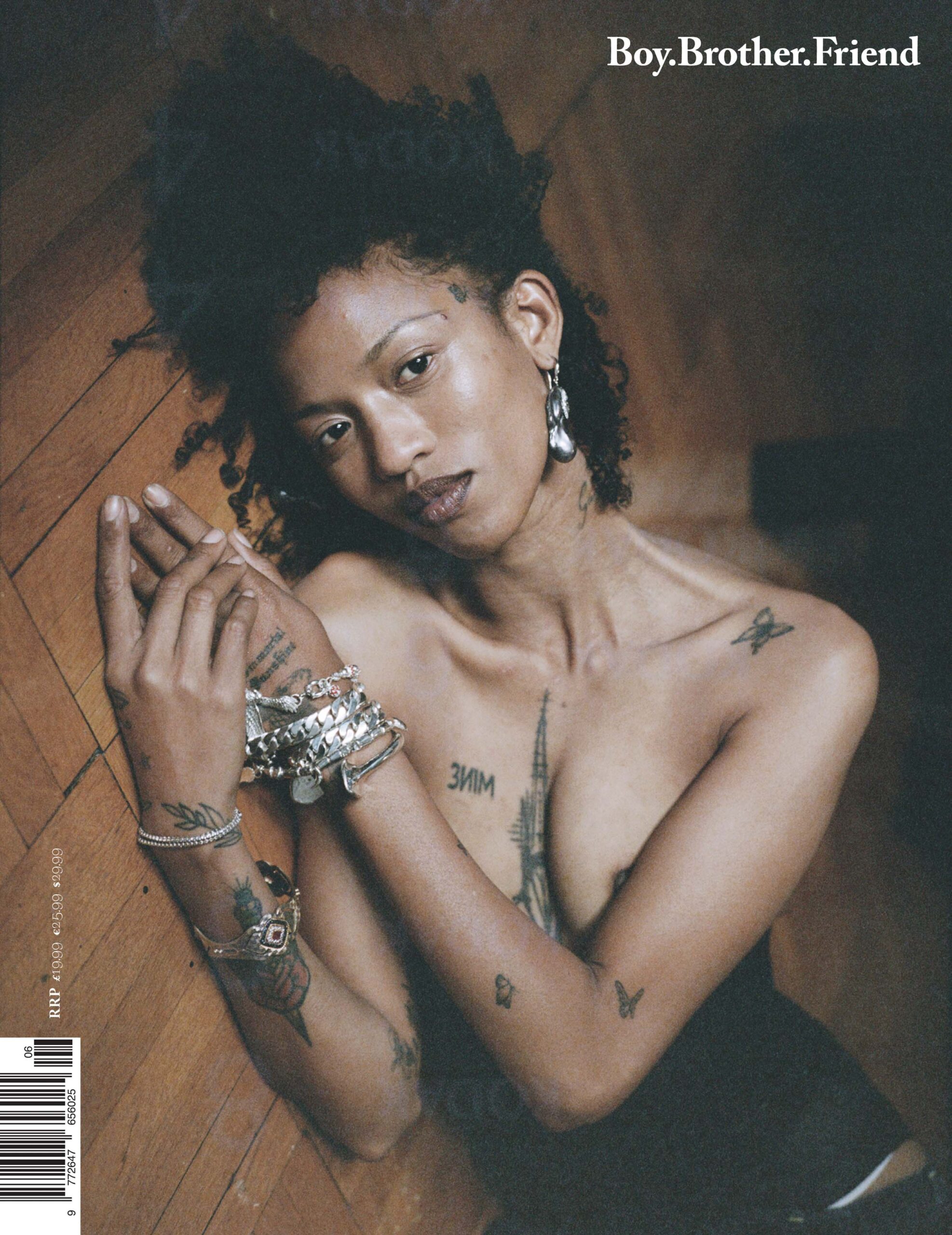Resilience has always been a key component of the African, and by extension, the black experience. As a Nigerian who has lived in Nigeria, even from the scope of whatever privilege I might have had, it was always clear to me that resilience was a key requirement to survive, and maybe even thrive one day. That’s just how it has always been - persevere and survive. You grow up a little and gain some exposure to the world at large, and you realise that the same is the case across the Atlantic, and indeed world over. It is packaged as the ultimate virtue, embellished and extolled as the best thing that one could ever possess. All this featured in the background of my thoughts and subconscious right until the global issue of George Floyd’s daylight murder in the United States. It got me thinking about the larger picture, what my contemporaries thought - How this invisible pressure to live life on ‘Endurance’ Mode. Forever having to be righteously stoic in the face of challenges that should not exist. I threw the general conversation at my friends and colleagues as well, and the responses were extremely insightful. This conversation around resilience is what informed the thought and creative processes behind the sixth issue of Boy.Brother.Friend.
As with every issue we have ever put out, we sought to approach what we already know from an investigative perspective. Not the kind of investigation that would require a trench coat and a fedora, but the kind that, through media and art, would provoke one to challenge preconceived notions. As ‘the culture’ evolves and moves forward, as it always should, I believe that we are to ask more questions, in order to effectively move forward. On ‘Black Fashion Futures Beyond Black Lives Matters Wake’, former BoyBrotherFriend contributor - Matthew Benson, reopens his account with us by scrupulously unpacking the inevitable role fashion plays in the never ending quest for equality. With this piece, Matthew helps us understand just how lucrative the fashion industry could be, and how fashion has an enduring connection to value. This piece stimulates reasoning, and consideration of what all that value accrued through fashion for the black community really means. What role does the fashion industry play? What role is the fashion industry allowed to play? What role should the fashion industry play? How does the value of the fashion industry enrich African designers and artisans? What should be our values moving forward? Which systems need upheaval, and which systems need to be put in place to ensure an equitable distribution of fashion wealth in the wake of Black Lives Matter? Against the backdrop of the theme of ‘Resilience’, this article speaks on issues that otherwise would not get the same exposure.
As Matthew joins us in the capacity of creative editor, he hits the ground running with a number of touches on this issue, valuable contributions that we look forward to seeing more of in the near future. There is an air of dynamism in the way the magazine operates, and as such, we’re excited to be sharing a glimpse of something many people have asked me about in both jest and all seriousness. Girl.Sister.Friend is a sister publication that we’re looking to roll out subsequently. I would refrain from saying too much concerning that and let your mind do the imagining as things fall into place.
We took the creative liberty of selecting sub-themes to build our stories around. ‘Soul Power’, ‘40 acres and a mule’, ‘Lost in Translation’, and ‘Collapse and Resurrection’. As always, the sub-themes all provide the tone for the stories, and penultimately connect to the primary theme. For covers, Supermodel Adesuwa Aighewi, of her new jewellery line aptly titled ‘Legacy’ graces the first cover, styled by fashion director Stella Greenspan and photographed by Jacqueline Landvik. We also dove into the grotesque stylings of artistic director of perfocraZe International Artists Residency - Va-Bene Elikem Fiatsi, more well known as… the Crazinist. Other cover stars include include the creative stylist, Matthew Josephs, supermodel Oluchi, and singer-songwriter, Kelela photographed by Liz Johnson Artur with Art Direction from Nolly Babes. I also had the privilege of collaborating with Kenneth Ize, a long time friend and collaborator to design a pop-up show in Lagos in January, and furthermore engaging in dialogue on sustainability, fashion, and African luxury with Ghanaian writer and entrepreneur, Yvette Tetteh.
Boy.Brother.Friend might be primarily based in London, but certainly, the essence of it is very global. In the time between the last publication and this one, we have come across more people with peculiarly pertinent stories. One of these pertinent, and most certainly the one of the Afro-Palestinians. In conversation with a prominent member of the community, “TBC” is able to shed some light on the prejudiced policing of young Afro-Palestinians, and the frequent raids that plague this minority community. Their claims against the Israeli police expose a pattern of targetment and harassment of Afro-Palestinian youth. Here, it is not very uncommon for teenagers as young as 14 years to have encounters with the police that ended in their arrests. Without a single doubt, The political and territorial conflict that have ravaged the Israeli-Palestinian region for years now, have a role to play in the alienation of Afro-Palestinians in the old city of Jerusalem. But upon closer inspection, and as pointed out in the first paragraph, the marginalisation, incarceration, and lack of opportunities all seem to be a common thread in the collective black experience on a global scale. There is more than enough to process and reflect on, as Afro-Palestinians tend to be underreported about. In conversation, one of the members of the BBF crew mentions that documenting Afro-Palestinians is a really important task, considering the fact that prior to this internal conversation, he had never even remotely thought, or known that there were any black Palestinians. This particular narrative felt very urgent to share, and it carries the theme of ‘Resilience’ perfectly, adding more questions to the discourse, encouraging pragmatic and progressive thought.
Further on the theme of ‘Resilience’, PRIM founder K Bailey Obazee says “Existing is standing in resilience to all structures in place to reduce and subjugate communities’, in a discussion that saw her speak’ on ‘Rosewater’, her good friend Liv Little’s debut novel, and the processes that led to the book’s eventual publication. Obazee makes some very solid statements about what resilience has come to mean for black people in the diaspora. She is well positioned to make these statements, considering PRIM’s impact on the marginalised black and queer communities. PRIM is a digital platform for storytelling, founded in order to fill the void of undocumented queer black stories and stories of people that possess Black ancestry. PRIM works with the voices of African, Caribbean and Afro-Latinx writers. So, with a heightened exposure to these stories of blackness and black existence, Obazee, and Liv speak on a resilience that is all too familiar.
As this issue comes into your possession, consider the plethora of questions asked, and the hitherto unknown realities we put on display. Art and fashion have always been tools for introspection, as well as products of introspection. So, as you pick up a copy, prepare not only to be entertained, prepare to have notions challenged, narratives unearthed and prepare to have your consciousness of social realities updated.
Resilience has always been a key component of the African, and by extension, the black experience. As a Nigerian who has lived in Nigeria, even from the scope of whatever privilege I might have had, it was always clear to me that resilience was a key requirement to survive, and maybe even thrive one day. That’s just how it has always been - persevere and survive. You grow up a little and gain some exposure to the world at large, and you realise that the same is the case across the Atlantic, and indeed world over. It is packaged as the ultimate virtue, embellished and extolled as the best thing that one could ever possess. All this featured in the background of my thoughts and subconscious right until the global issue of George Floyd’s daylight murder in the United States. It got me thinking about the larger picture, what my contemporaries thought - How this invisible pressure to live life on ‘Endurance’ Mode. Forever having to be righteously stoic in the face of challenges that should not exist. I threw the general conversation at my friends and colleagues as well, and the responses were extremely insightful. This conversation around resilience is what informed the thought and creative processes behind the sixth issue of Boy.Brother.Friend.
As with every issue we have ever put out, we sought to approach what we already know from an investigative perspective. Not the kind of investigation that would require a trench coat and a fedora, but the kind that, through media and art, would provoke one to challenge preconceived notions. As ‘the culture’ evolves and moves forward, as it always should, I believe that we are to ask more questions, in order to effectively move forward. On ‘Black Fashion Futures Beyond Black Lives Matters Wake’, former BoyBrotherFriend contributor - Matthew Benson, reopens his account with us by scrupulously unpacking the inevitable role fashion plays in the never ending quest for equality. With this piece, Matthew helps us understand just how lucrative the fashion industry could be, and how fashion has an enduring connection to value. This piece stimulates reasoning, and consideration of what all that value accrued through fashion for the black community really means. What role does the fashion industry play? What role is the fashion industry allowed to play? What role should the fashion industry play? How does the value of the fashion industry enrich African designers and artisans? What should be our values moving forward? Which systems need upheaval, and which systems need to be put in place to ensure an equitable distribution of fashion wealth in the wake of Black Lives Matter? Against the backdrop of the theme of ‘Resilience’, this article speaks on issues that otherwise would not get the same exposure.
As Matthew joins us in the capacity of creative editor, he hits the ground running with a number of touches on this issue, valuable contributions that we look forward to seeing more of in the near future. There is an air of dynamism in the way the magazine operates, and as such, we’re excited to be sharing a glimpse of something many people have asked me about in both jest and all seriousness. Girl.Sister.Friend is a sister publication that we’re looking to roll out subsequently. I would refrain from saying too much concerning that and let your mind do the imagining as things fall into place.
We took the creative liberty of selecting sub-themes to build our stories around. ‘Soul Power’, ‘40 acres and a mule’, ‘Lost in Translation’, and ‘Collapse and Resurrection’. As always, the sub-themes all provide the tone for the stories, and penultimately connect to the primary theme. For covers, Supermodel Adesuwa Aighewi, of her new jewellery line aptly titled ‘Legacy’ graces the first cover, styled by fashion director Stella Greenspan and photographed by Jacqueline Landvik. We also dove into the grotesque stylings of artistic director of perfocraZe International Artists Residency - Va-Bene Elikem Fiatsi, more well known as… the Crazinist. Other cover stars include include the creative stylist, Matthew Josephs, supermodel Oluchi, and singer-songwriter, Kelela photographed by Liz Johnson Artur with Art Direction from Nolly Babes. I also had the privilege of collaborating with Kenneth Ize, a long time friend and collaborator to design a pop-up show in Lagos in January, and furthermore engaging in dialogue on sustainability, fashion, and African luxury with Ghanaian writer and entrepreneur, Yvette Tetteh.
Boy.Brother.Friend might be primarily based in London, but certainly, the essence of it is very global. In the time between the last publication and this one, we have come across more people with peculiarly pertinent stories. One of these pertinent, and most certainly the one of the Afro-Palestinians. In conversation with a prominent member of the community, “TBC” is able to shed some light on the prejudiced policing of young Afro-Palestinians, and the frequent raids that plague this minority community. Their claims against the Israeli police expose a pattern of targetment and harassment of Afro-Palestinian youth. Here, it is not very uncommon for teenagers as young as 14 years to have encounters with the police that ended in their arrests. Without a single doubt, The political and territorial conflict that have ravaged the Israeli-Palestinian region for years now, have a role to play in the alienation of Afro-Palestinians in the old city of Jerusalem. But upon closer inspection, and as pointed out in the first paragraph, the marginalisation, incarceration, and lack of opportunities all seem to be a common thread in the collective black experience on a global scale. There is more than enough to process and reflect on, as Afro-Palestinians tend to be underreported about. In conversation, one of the members of the BBF crew mentions that documenting Afro-Palestinians is a really important task, considering the fact that prior to this internal conversation, he had never even remotely thought, or known that there were any black Palestinians. This particular narrative felt very urgent to share, and it carries the theme of ‘Resilience’ perfectly, adding more questions to the discourse, encouraging pragmatic and progressive thought.
Further on the theme of ‘Resilience’, PRIM founder K Bailey Obazee says “Existing is standing in resilience to all structures in place to reduce and subjugate communities’, in a discussion that saw her speak’ on ‘Rosewater’, her good friend Liv Little’s debut novel, and the processes that led to the book’s eventual publication. Obazee makes some very solid statements about what resilience has come to mean for black people in the diaspora. She is well positioned to make these statements, considering PRIM’s impact on the marginalised black and queer communities. PRIM is a digital platform for storytelling, founded in order to fill the void of undocumented queer black stories and stories of people that possess Black ancestry. PRIM works with the voices of African, Caribbean and Afro-Latinx writers. So, with a heightened exposure to these stories of blackness and black existence, Obazee, and Liv speak on a resilience that is all too familiar.
As this issue comes into your possession, consider the plethora of questions asked, and the hitherto unknown realities we put on display. Art and fashion have always been tools for introspection, as well as products of introspection. So, as you pick up a copy, prepare not only to be entertained, prepare to have notions challenged, narratives unearthed and prepare to have your consciousness of social realities updated.






